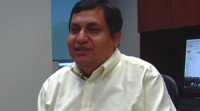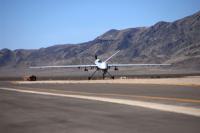-
Vibrator maker to pay out $3 million for tracking users' sexual activity
We-Vibe, the sex toy maker, has agreed to pay customers up to $7,600 each selling them a “smart vibrator” which tracked the customers’ sexual habits without their knowledge. A class-action lawsuit was filed against in an Illinois federal court against We-Vibe’s parent company, Standard Innovation. Standard Innovation has been ordered to pay a total of $3 million to owners of the vibrator who had also used the app associated with the vibrators (the tracking of customers was done by the app).
-
-
No wiretapping at Trump Tower: Senate, House intelligence leaders

Richard Burr (R-N.C.) and Mark Warner (D-Va.), the top two lawmakers on the Senate Intelligence Committee, on Thursday issued a statement to confirm that there is no evidence to back President Donald Trump’s assertion that Trump Tower was under surveillance. On Wednesday, Devin Nunes (R-Calif.) and Adam Schiff (D-Calif.), the leaders of the House Intelligence Committee, said there was no proof Trump was wiretapped during the administration of Barack Obama.
-
-
U.K. intel agency dismisses claim it helped wiretap Trump as “utterly ridiculous”
High-level British intelligence officials have angrily rejected an allegation that the U.K. intelligence service helped former president Barack Obama “wiretap” Donald Trump during the 2016 election. White House press secretary Sean Spicer repeated the claim in his Thursday press briefing. A spokesperson for the U.K. intelligence service dismissed Spicer’s claim as “utterly ridiculous.” A spokesman for Prime Minister Theresa May said on Friday: “We’ve made clear to the administration that these claims are ridiculous and should be ignored.”
-
-
If surveillance cameras are to be kept in line, the rules will have to keep pace with technology

The growing prevalence of cameras and greater understanding of the many ways in which we are surveilled has led many – including the current commissioner, Tony Porter, to voice concern that Britain is “sleepwalking into a surveillance state”. This raises critical questions about whether we can be confident that all these cameras are being used in a way the public would approve of – and if not, whether regulation can force CCTV operators into line. In the future, surveillance camera processes will become more opaque, more sophisticated, and potentially integrated with data from a variety of sources, including social media, meaning decisions about who to survey and who determines intensive surveillance will be determined by big data and algorithms. Any regulatory framework that does not or cannot keep up with the pace of change will soon become worthless.
-
-
The WikiLeaks CIA release: When will we learn?

This week’s WikiLeaks release of what is apparently a trove of Central Intelligence Agency information related to its computer hacking should surprise no one: Despite its complaints of being targeted by cyberattackers from other countries, the U.S. does a fair amount of its own hacking. Multiple federal agencies are involved, including the CIA and the National Security Agency, and even friendly nations. These latest disclosures also remind us of the cybersecurity truism that any electronic device connected to a network can be hacked. If the United States is going to be successful at securing its crucial government information, it must do a better job managing the volume of information generated and controlling access to it, both authorized and otherwise. Granted, neither is an easy task. However, absent fundamental changes that fix the proverbial cult of classification, there likely will be many more WikiLeaks-type disclosures in the future.
-
-
Fuzzy logic to help drones land themselves on moving platforms

The buzzword in drone research is autonomous — having the unmanned aerial vehicle do most or all of its own flying. Researchers are using artificial intelligence, called fuzzy logic, to get drones to navigate and land themselves on moving platforms. This holds promise for commercial uses such as delivering packages.
-
-
Tech coalition fights DHS proposal to collect social media passwords
Earlier this week, the Center for Democracy & Technology announced the creation of a coalition of tech companies, NGOs, and privacy advocates to oppose efforts by DHS to collect social media passwords from individuals entering the United States. The coalition focuses on visa applicants who might be compelled to share their passwords under new DHS policies.
-
-
Russia, Trump and the 2016 election: What’s the best way for Congress to investigate?

Exactly how will the U.S. conduct a fair and accurate investigation into Russian meddling in the 2016 election and links with President Donald Trump’s campaign? U.S. congressional leaders are discussing options. At a time when Congress is sharply polarized along partisan lines, congressional investigations tend to become microcosms of that polarization. This is all the more true when an investigation involves an issue about which the president is vulnerable to political embarrassment or attack. If the intelligence committee proves unable to conduct a thorough and bipartisan investigation of Russian meddling and Trump’s campaign, pressure will build on America’s leaders to establish a more independent probe. Hanging in the balance could be whether the United States can forge consensus about what happened and how to prevent it from happening again.
-
-
U.S. intelligence: a “truth-devoted” culture
Rolf Mowatt-Larssen, now a senior fellow at the Belfer Center for Science and International Affairs, was director of intelligence and counterintelligence at the U.S. Department of Energy and was a decorated CIA intelligence officer. He discusses the nature of intelligence work, the belief structure that drives those who do it, the probe of Russian interference in the election, and the friction between the Trump administration and the intelligence agencies.
-
-
Michael Flynn's top aide fired from NSC after security clearance is denied
A top aide to Michael Flynn, President Donald Trump’s national security advisor, was on Friday fired from his position as senior director for Africa at the National Security Council (NSC) after the CIA rejected his application for a high-level security clearance. Flynn himself is in hot water for misleading Vice President Mike Pence about discussions he — Flynn — had with Russian ambassador Sergey Kislyak on 29 December, in which he told the Russian ambassador not to worry about the sanctions the Obama administration had imposed on Russia that same day for its cyber-meddling in the presidential election, because Trump, after being sworn in, would lift these sanctions – as well as the sanctions imposed on Russia for annexing Crimea and invading Ukraine.
-
-
SideArm prototype catches full-size drones flying at full speed
Few scenes capture the U.S. Navy’s prowess as effectively as the rapid-fire takeoff and recovery of combat jets from the deck of an aircraft carrier. The ability to carry air power anywhere in the world, and both launch those aircraft to flight speed and bring them to a stop over extremely short distances, has been essential to carriers’ decades-long dominance of naval warfare. To help provide similar capabilities—minus the 90,000-ton carriers—to U.S. military units around the world, DARPA’s SideArm research effort seeks to create a self-contained, portable apparatus able to horizontally launch and retrieve unmanned aerial systems (UASs) of up to 900 pounds. The self-contained, portable apparatus can be used to launch and retrieve unmanned aircraft from trucks, ships, and fixed bases.
-
-
Elbit Systems, NOA secure Uruguay municipalities
Uruguay recently inaugurated a $20 million video surveillance monitoring center using Israeli technologies from NOA security and Elbit Systems. The Maldonado District Administration in Uruguay turned to Israeli technology for the Safe District project, that spans across six municipal authorities including the well-known Punta Del Este tourist resort.
-
-
Calls in Germany for bolstering surveillance in wake of Berlin attack
Klaus Bouillon, the interior minister in the German state of Saarland, said that “It is time to eliminate the barriers to monitoring suspects’ telephone conversations.” He also urged the revamping of a law for monitoring popular online encrypted messaging services, such as WhatsApp, and said that next month he would make a formal proposal to that effect. Bouillon, a member of Chancellor Angela Merkel’s Christian Democratic Union (CDU), said, “It cannot be the case that a company can make billions with WhatsApp, while at the same allowing criminals to organize, direct young people and obstruct our authorities by not providing the necessary encryption codes.”
-
-
Berlin attack: security intelligence has limits in preventing truck-borne terror
The Christmas market truck assault in Berlin, which has left twelve dead and dozens injured, is a disturbing echo of the truck-borne attack on Bastille Day celebrants on the Nice promenade in July. How could such events be allowed to happen? Why weren’t intelligence agencies in Germany and France able to stay one step ahead of the perpetrators? The role of the security and intelligence agencies to remain vigilant and seek to monitor extremist elements will undoubtedly endure. The secret of their success will continue to be keeping their successes secret. However, this does not absolve the rest of society from remaining engaged in community, by being inclusive, welcoming, and helpful, while also maintaining a level of vigilance many had come to associate with a bygone era.
-
-
Clear guidelines needed for “Stingray” devices: Congressional panel
The House Oversight and Government Reform Committee the other day released a bipartisan staff report after a yearlong investigation into federal, state, and local law enforcement use of cell-site simulators – devices that transform a cell phone into a real-time tracking device. The report finds these law enforcement agencies have varying policies for the use of these powerful devices. As a result, the report recommends Congress pass legislation to establish a clear, nationwide framework that ensures the privacy of all Americans are adequately protected.
-
- All
- Regional
- Water
- Biometrics
- Borders/Immig
- Business
- Cybersecurity
- Detection
- Disasters
- Government
- Infrastructure
- International
- Public health
- Public Safety
- Communication interoperabillity
- Emergency services
- Emergency medical services
- Fire
- First response
- IEDs
- Law Enforcement
- Law Enforcement Technology
- Military technology
- Nonlethal weapons
- Nuclear weapons
- Personal protection equipment
- Police
- Notification /alert systems
- Situational awareness
- Weapons systems
- Sci-Tech
- Sector Reports
- Surveillance
- Transportation
Advertising & Marketing: advertise@newswirepubs.com
Editorial: editor@newswirepubs.com
General: info@newswirepubs.com
2010-2011 © News Wire Publications, LLC News Wire Publications, LLC
220 Old Country Road | Suite 200 | Mineola | New York | 11501
Permissions and Policies
Editorial: editor@newswirepubs.com
General: info@newswirepubs.com
2010-2011 © News Wire Publications, LLC News Wire Publications, LLC
220 Old Country Road | Suite 200 | Mineola | New York | 11501
Permissions and Policies
